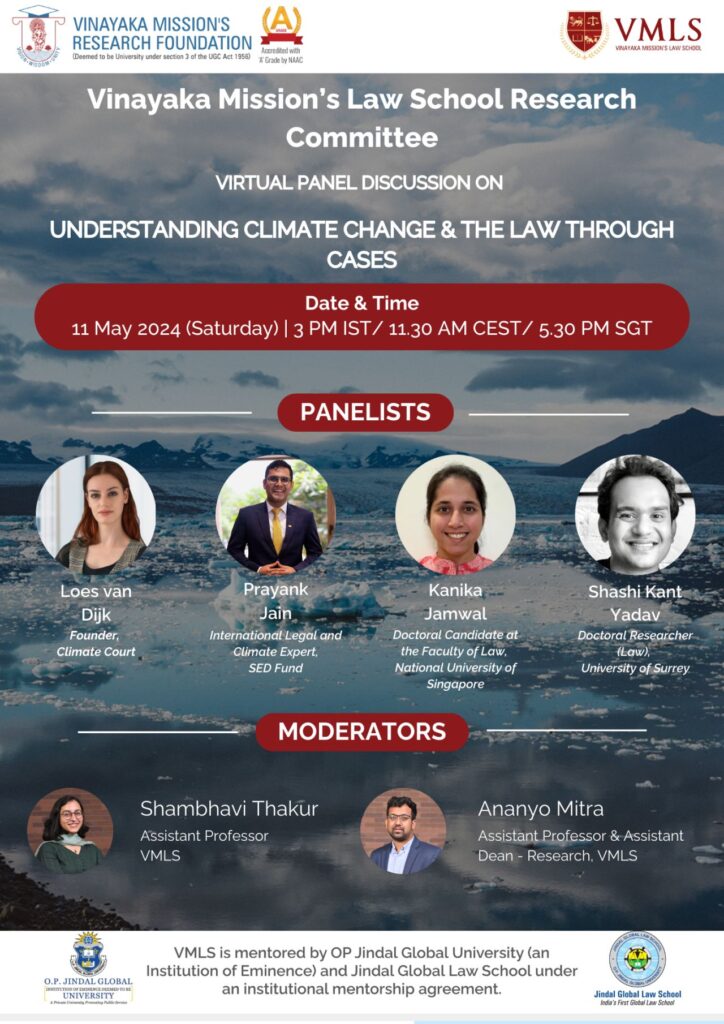Event Title: Virtual Panel Discussion on Landmark Climate Change Judgments
Organized by: Research Committee, Vinayaka Mission’s Law School (VMLS)


Event Title: Virtual Panel Discussion on Landmark Climate Change Judgments
Organized by: Research Committee, Vinayaka Mission’s Law School (VMLS)
The Research Committee of Vinayaka Mission’s Law School (VMLS) organized a virtual panel discussion on recent landmark judgments by the Supreme Court of India and the European Court of Human Rights (ECHR). The discussion focused on two significant cases: M.K. Ranjitsinh v. Union of India (The Great Indian Bustard case) and Verein KlimaSeniorinnen Schweiz and Others v. Switzerland (KlimaSeniorinnen). These judgments hold immense importance in the legal landscape of climate change.

The panel comprised the following experts:
The discussion was moderated by:
This case addressed the critical issue of protecting the endangered Great Indian Bustard. The Supreme Court of India delivered a judgment that emphasized the need for immediate and stringent measures to conserve this species and its habitat. Key points discussed included:
The ECHR’s judgment in this case underscored the responsibility of governments to address climate change and its impacts on vulnerable populations. The discussion highlighted:
The panel discussion was followed by an interactive session where participants had the opportunity to ask questions and engage with the panelists. This segment fostered a lively exchange of ideas and allowed for deeper exploration of the topics covered.
The virtual panel discussion provided valuable insights into the landmark judgments on climate change by the Supreme Court of India and the ECHR. The Research Committee of VMLS extends its gratitude to the distinguished panelists, moderators, and participants for their contributions to a successful and enlightening event.
The Court has also asked for details about the builder’s past and current projects across the country; the order was passed on a writ petition by the owners association, alleging that all three 17-storey buildings in Saligramam are now unsafe
March 15 2024The Court has also asked for details about the builder’s past and current projects across the country; the order was passed on a writ petition by the owners association, alleging that all three 17-storey buildings in Saligramam are now unsafe
March 15 2024The Court has also asked for details about the builder’s past and current projects across the country; the order was passed on a writ petition by the owners association, alleging that all three 17-storey buildings in Saligramam are now unsafe
March 15 2024The Court has also asked for details about the builder’s past and current projects across the country; the order was passed on a writ petition by the owners association, alleging that all three 17-storey buildings in Saligramam are now unsafe
March 15 2024